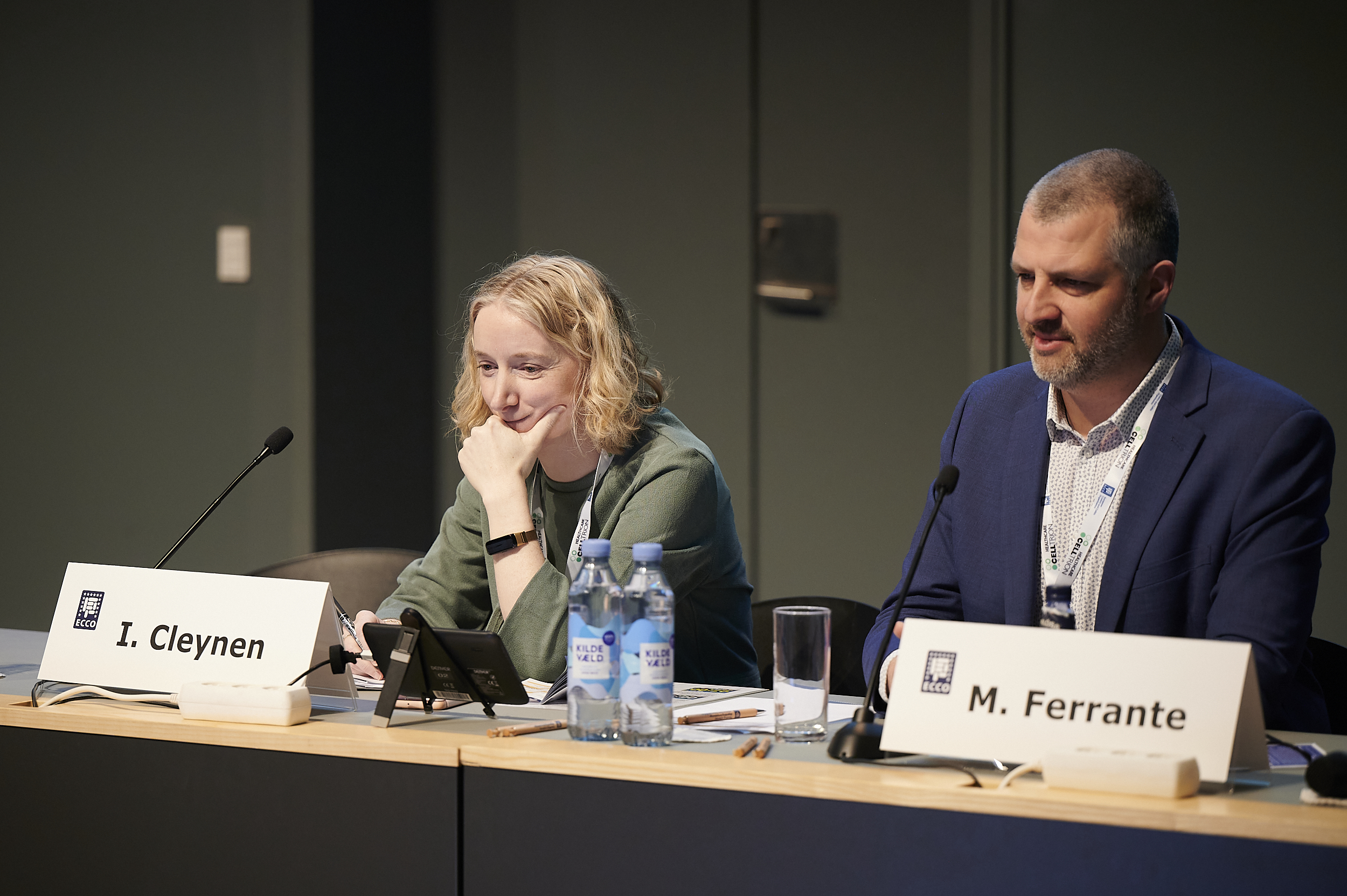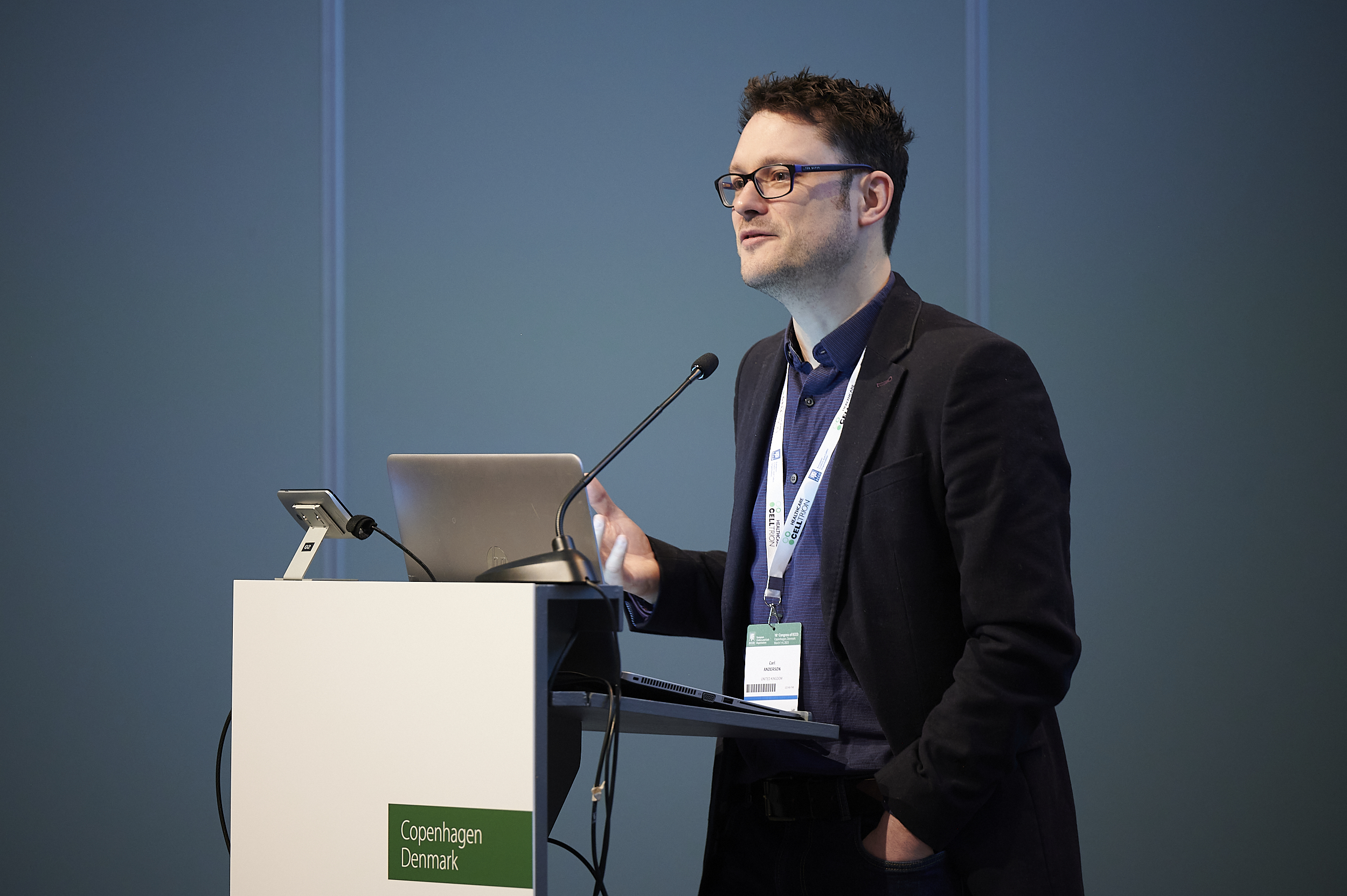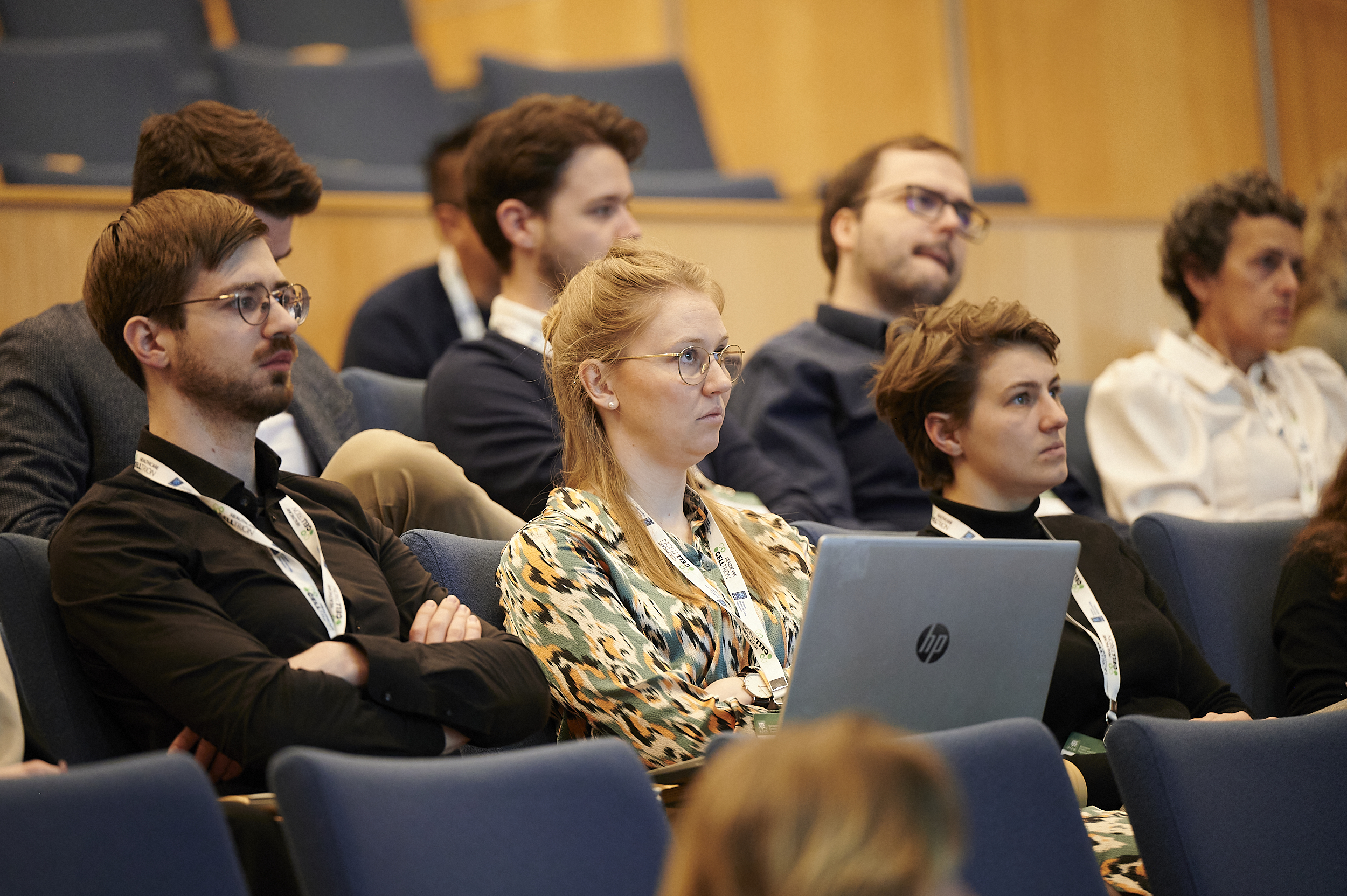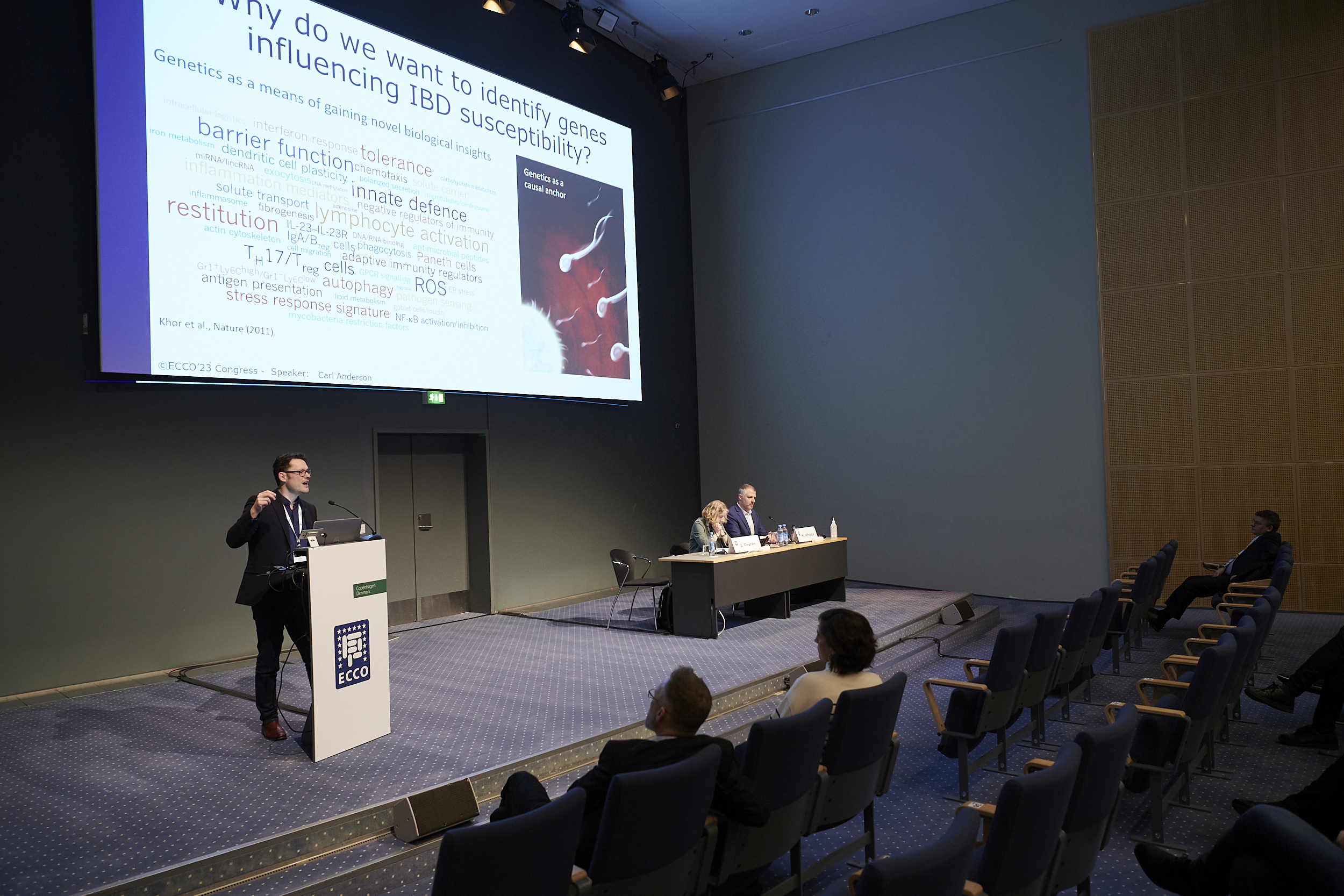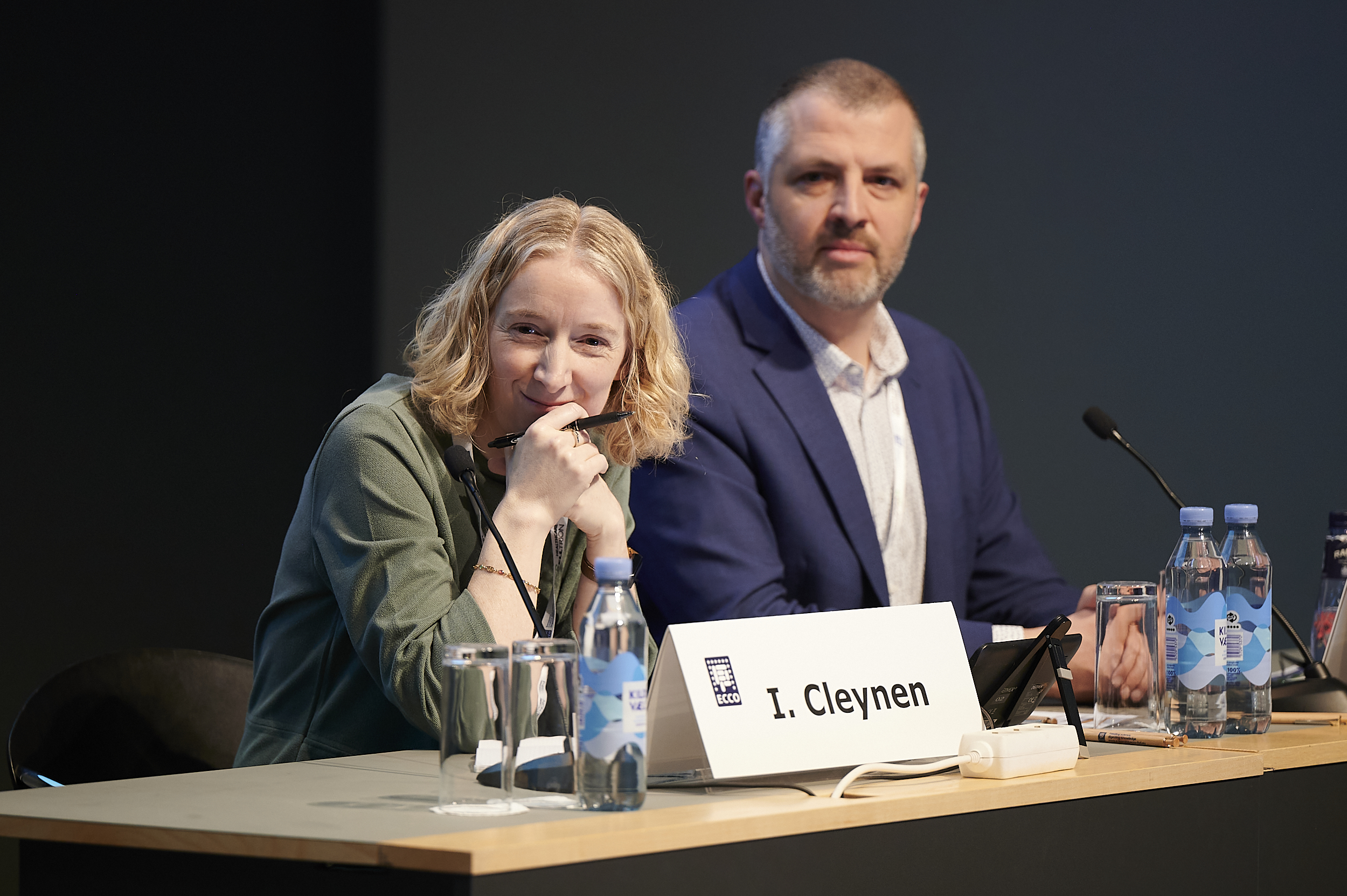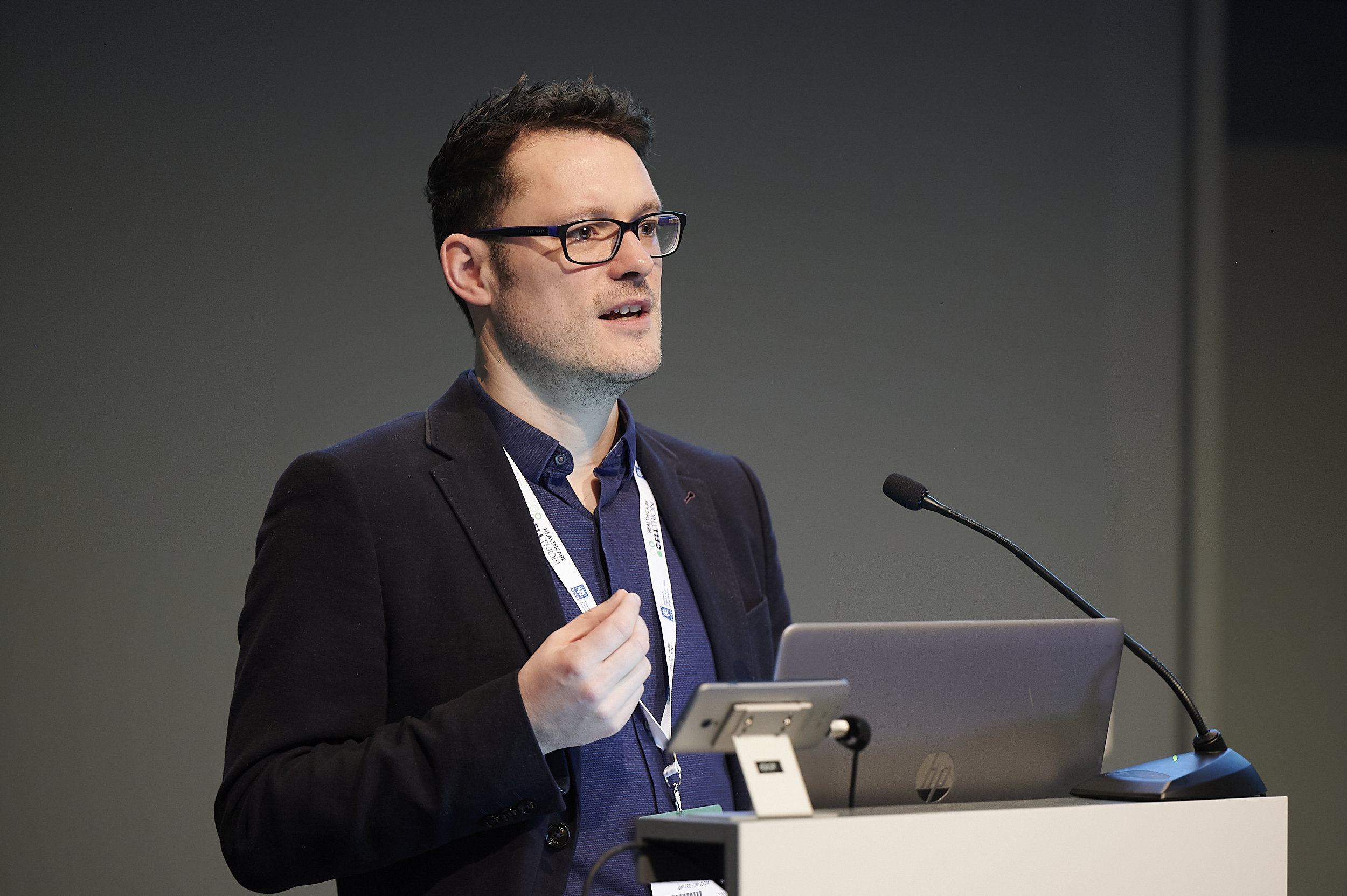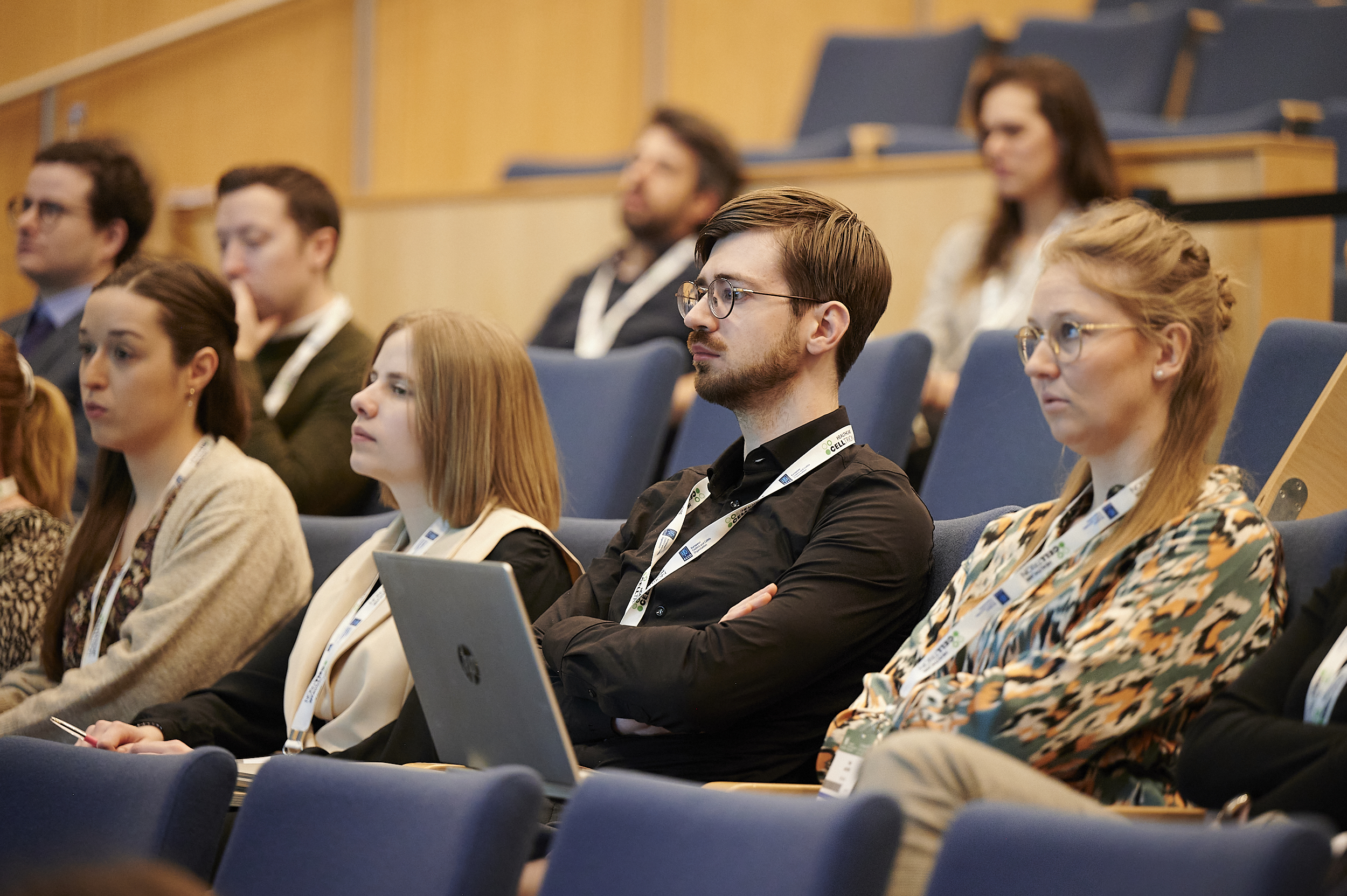Report on the 11th SciCom Workshop, ECCO’23
Marc Ferrante SciCom Chair, Isabelle Cleynen & Timothy Raine, SciCom Members
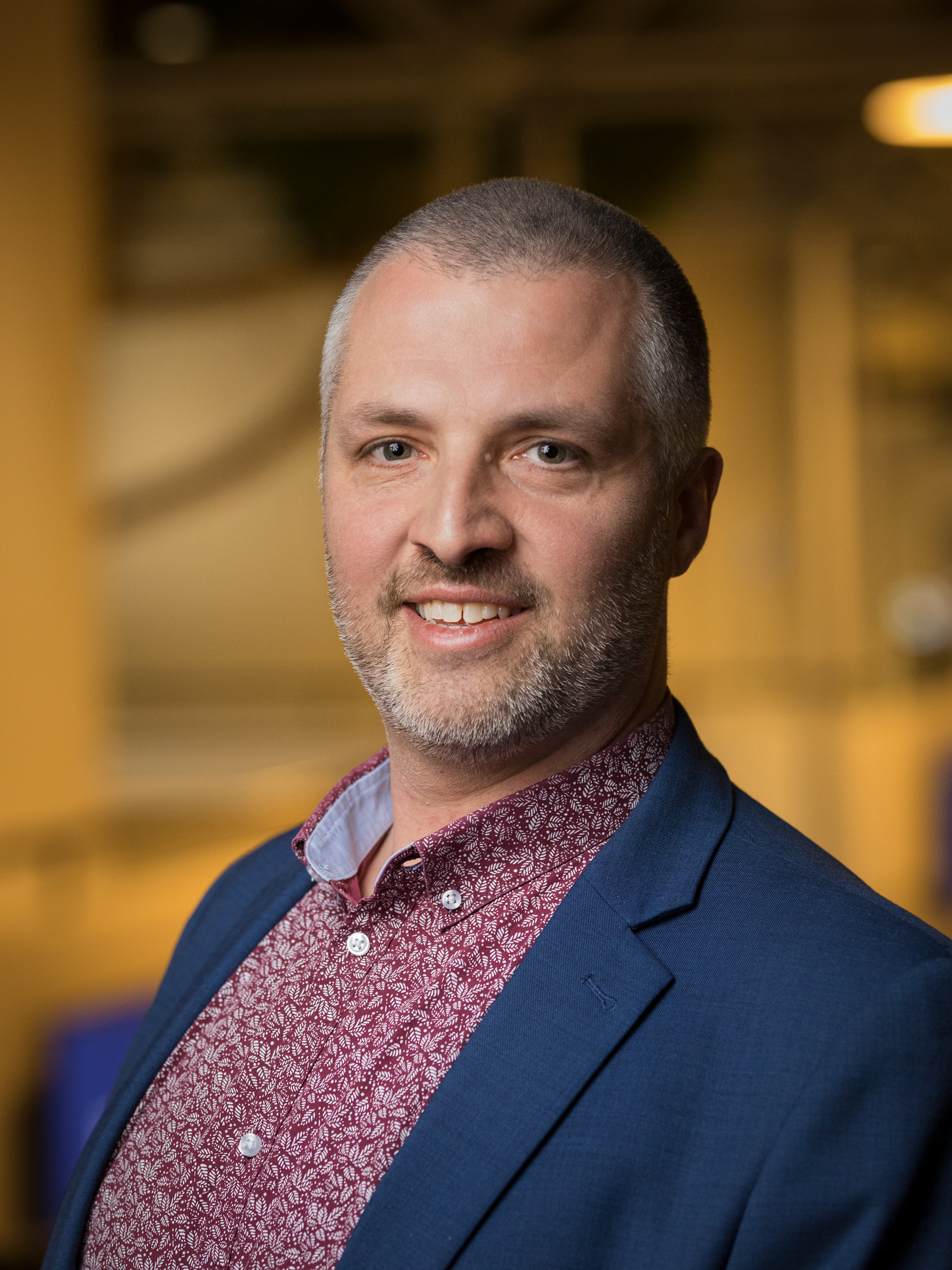 Marc Ferrante © ECCO |
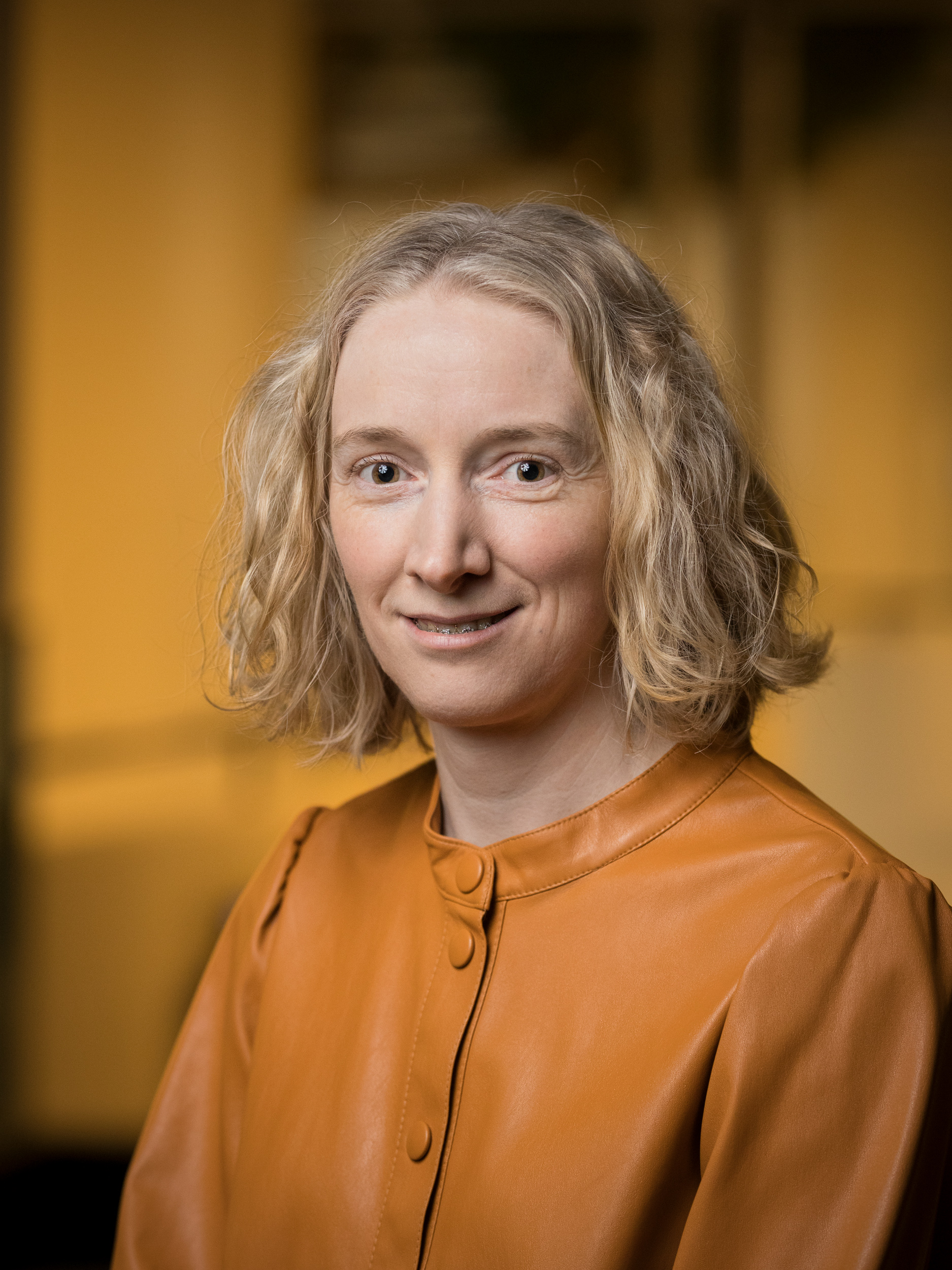 Isabelle Cleynen Isabelle Cleynen© ECCO |
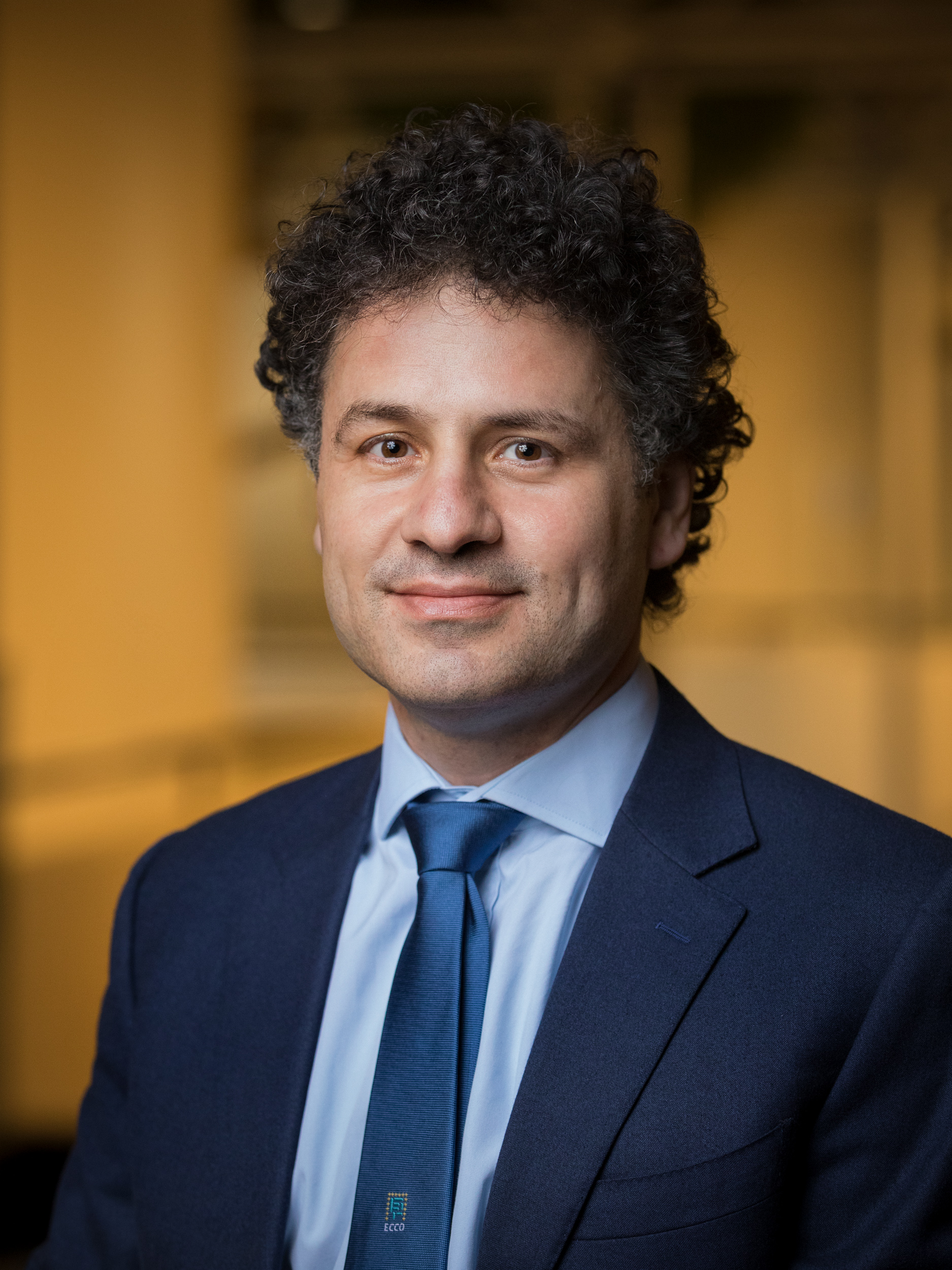 Timothy Raine Timothy Raine© ECCO |
At the recent 18th Congress of ECCO, Sebastian Zeissig (Dresden, Germany) stepped down as a member of the ECCO Scientific Committee. After two years of active membership, Sebastian became SciCom Chair back in 2020. Although this period was greatly affected by the pandemic, Sebastian made sure that ECCO continued to support clinical, translational and basic science. During his chairmanship, the different ECCO Fellowships, Grants and Travel Awards were streamlined and optimised. Together with the rest of the team, he spent a lot of energy in finding appropriate reviewers for the dozens of project proposals received every year. Sebastian was also the driving force behind the new ECCO Young Researcher Award, which was granted for the first time earlier this year. As SciCom Chair, he supervised two successful Scientific Workshops, one on precision medicine (together with Michael Scharl) and another on postoperative Crohn’s Disease recurrence (together with Yves Panis and Marc Ferrante). We thank Sebastian for his great enthusiasm, his perseverance and his friendship.
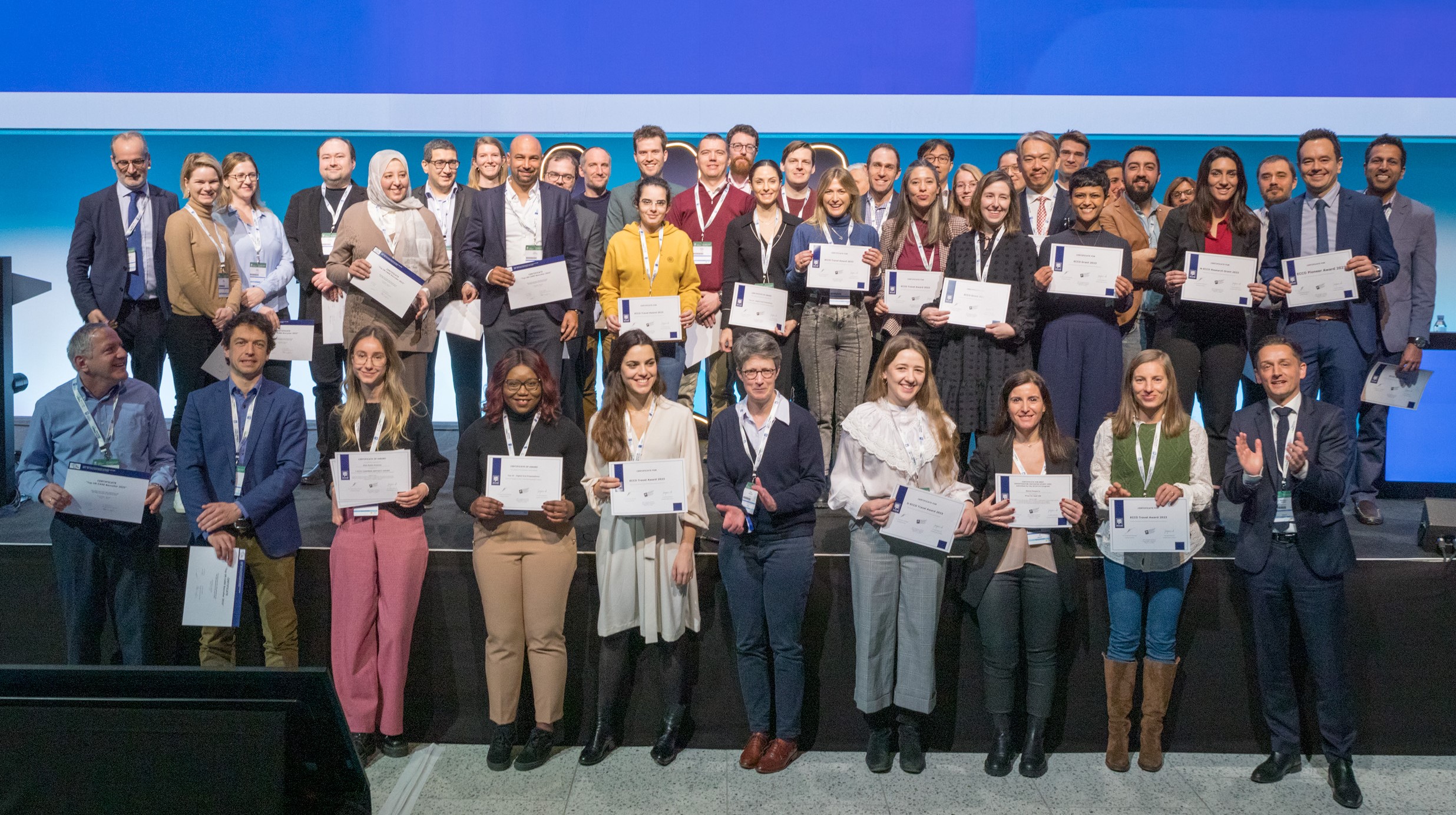
We are delighted that Tim Raine (Cambridge, UK) has joined our team. With his broad interest in both the basic and the clinical aspects of IBD, he will for sure be a great asset for our team. Below you can find a short introduction to Tim.
Meet Tim Raine
It’s a real pleasure to be joining the ECCO SciCom. I’m a gastroenterologist and clinical lead for the IBD service at Addenbrooke’s Hospital, Cambridge University Teaching Hospitals in the UK. My scientific journey in IBD actually started before I came to gastroenterology as a clinician – I undertook a PhD looking at the behaviour of tissue-infiltrating and autoinflammatory lymphocytes under conditions of GI pathogen infection. Later I undertook postdoctoral work studying T cells in human mucosal biopsies and developed an interest in the regulation of the mucosal immune system. In addition to my clinical work with the IBD service in Cambridge, I now undertake research looking at the influence of genetic variation on GI immune regulation, in collaboration with colleagues at the Wellcome Sanger Institute. I’m also interested in the design and analysis of interventional trials in IBD, particularly in how mucosal immunology readouts can inform early phase development. Before joining SciCom, I was a member of the Y-ECCO and GuiCom Teams, both of which I had the privilege of chairing. I’m really looking forward to working with the SciCom Team in advancing the scientific mission of ECCO and supporting all the high-quality research work and proposals that are submitted every year by the ECCO Community.
Report on the 11th SciCom Workshop, ECCO’23
It has been 20 years since the NOD2 gene was identified as the first susceptibility gene for IBD. Huge progress has since been made. At the 11th edition of the SciCom Workshop we asked some of the key persons in the field to talk us through the progress over the past 20 years, and to discuss whether and how we can translate these genetic findings to clinical care. Besides genetics, we also looked at that other important factor in IBD pathogenesis: our environment. In several talks we zoomed in on a few potential environmental factors (e.g. diet, smoking, air pollutants) and how they interact with the host. Here are some of the main take-home messages from the session.
First, Carl Anderson guided us through the genetic landscape of IBD. The latest analyses of the International IBD Genetics Consortium have more than doubled the number of genetic risk loci from ca. 240 to 500. With the largest whole-exome and whole-genome sequencing studies in IBD to date, rare variants are also entering the picture. But even more important is what we can learn about disease pathogenesis and targets for treatment from all of these studies, and where genetic findings may be integrated with other omics to unravel the full picture. Carl gave us a sneak preview of some of their most exciting findings in this regard. Next, Séverine Vermeire discussed whether and how genetics have changed clinical care in IBD. A clear example of such an impact is the monogenic forms of IBD, where a genetic diagnosis is now part of the clinical work-up. For the majority of IBD patients with later-onset disease, however, genetics is not useful in diagnosing the disease. There is some merit in genetics for stratifying patients – where genetics has shown us that we should reconsider IBD subgrouping. Finally, also emphasising Carl’s point, genetic findings have helped in the selection of drug targets and indications (e.g. JAK/STAT inhibitors), and might also be used in future to select patients for different drugs.
We then moved from genetics to environmental factors. First, Joana Torres delivered a splendid talk showing the importance of events in early life for disease susceptibility, as this is the time when our immune system and gut microbiome develop. She showed that children born from IBD mothers have a reduced gut bacterial diversity, a finding which led to the design of the MELODY trial to test whether dietary intervention during pregnancy could beneficially shift the microbiome of mother and baby. She also covered the effect of breastfeeding and exposures like smoking, antibiotics and heavy metals, and suggested a neat plan to study the early exposome by looking at the matrix of milk teeth that store information on different composites to which exposure occurs in early life stages.
The second session of the workshop started with Michael Scharl taking us through the effect of dietary additives on IBD pathogenesis. These included food sweeteners, emulsifiers and microplastics. Michael made it clear that more dietary intervention studies need to be performed in order to develop strict guidance for our daily clinical practice. Thaddeus Stappenbeck focused on the role of air pollutants and smoking. He very elegantly showed how the effect of tobacco smoke on Paneth cell phenotype is only seen in carriers of the ATG16L1 T300A risk variant, emphasising the interaction between genomics and environment and cell type-specific effects. At the same time the genetic effect on Paneth cell phenotype seemed to be population specific, with differential effects of ATG16L1 and LRRK2 – both involved in autophagy – in Japanese versus North American populations. Finally, Timon Adolph covered the host–microbiome axis in IBD, and discussed whether and how we can influence our gut microbiome. We know that an altered abundance of beneficial versus pathogenic microbes is seen in IBD. Different studies have tried to influence our gut composition, ranging from faecal microbial transplant studies, in which it was seen that some specific bacteria in fact have anti-inflammatory properties, to therapeutic modulation of the microbiome. Another option for influencing the gut microbiome is through our diet, which can also influence gut inflammation. Most restrictive diets have not been found to be really effective, however, and so we need further studies screening for environmental inflammatory factors and how to translate these into diets that could be helpful.
Taking these findings together, we can conclude that we have learned a lot during the past 20 years, not only about the genetics of IBD but also about which environmental factors may play a role and how they ‘pull the trigger’. But with every question solved, many more arise. We are therefore very much looking forward to a similar session 20 years from now, which will reveal what we have uncovered in the meantime and examine how these findings are being implemented in clinical practice. Don’t hesitate to contact us with your predictions in this regard.
On behalf of SciCom, we thank all the speakers for their exciting presentations and all attendees for their questions and feedback. All of you contributed to a great 11th SciCom Workshop. See you next year for the 12th edition.
Browse through the gallery:
Pictures are subject to copyright © ECCO



